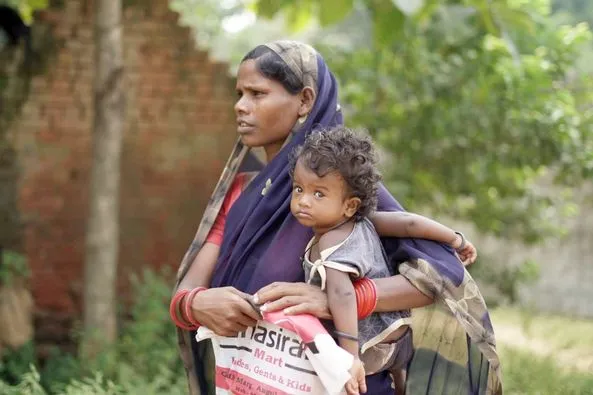Have you ever wondered what is more important to an individual, company, or even country for its economic growth? It is definitely not just the financial capital. According to experts, it is the human capital that pushes every company and country forward. The potential of an organization is often determined based on its people from the top down. That’s why almost all the organisations invest a huge sum and build a separate team to monitor and upskill their human resources.
Understanding human capital
Human capital, in broader terms, refers to the economic value of an individual’s skills and experience. It includes assets like education, intelligence, training, skills, health and other important values like meeting deadlines, punctuality and loyalty, among others. We believe it to be an intangible asset capable of increasing productivity and profitability of businesses. But not all the labour is equal. That’s why it becomes important for a company to invest in employees to improve their quality.
The more investment a business makes in its employees, the chances of increasing its productivity and success become higher. Human capital has a strong association with the economic growth of a country. It directly helps in boosting the country’s economy. Not just that, human capital development is a multifaceted concept that is also crucial for an individual’s own progress. It helps in fostering economic growth, increasing individual opportunities and promoting social benefits.
World Bank’s Human Capital Project
Aiming to assist countries to invest effectively in their human resources through a comprehensive approach, the World Bank officially launched the human capital project in 2018. India was part of the project ever since the launch. In addition, 85 countries have signed up for the project to work on strategic approaches to transform the outcomes of their human capital. As a part of the programme, countries regularly connect to exchange knowledge and feedback.
Believing it to be the centre of their strategy for global development, the World Bank says, “Protecting and investing in people is one of three main ways we are working to reach our goals of ending extreme poverty by 2030 and boosting shared prosperity in all countries. It is closely integrated with our efforts to promote sustainable, inclusive growth and build resilience across developing countries.”
About 60% of children born today will only be half as productive as they can be with complete education and full health, as per the World Bank Group’s Human Capital Index (HCI), published in 2018 and updated in 2020. The number reflects a serious human capital crisis and emphasises the dire need for human capital development.
Factors contributing to human capital development
Human capital development refers to the enhancement of an individual’s skills, abilities and other values to make them more productive and valuable in the existing workforce. Since it is crucial for the growth of individuals, businesses and the country as a whole, it is important to take it seriously.
Understanding the components of human capital development would help individuals, organisations and governments optimise their investment for better growth. It in turn will help them to widen the economy and provide innovative and sustainable contributions to society. Some of the key factors contributing to human capital development are below.
Education
Education’s pivotal role in the advancement and progress of a society makes it an influencing factor in the human capital development. With the help of both formal and vocational education, an individual will acquire knowledge that is required not just to survive but also to grow and help speed up the economic growth.
Acquiring, improving and honing specific abilities have become essential in recent times. Fundamental skills like reading, writing, and mathematics lay a strong foundation for further upskilling. Gaining specialised knowledge and expertise in a particular sector will help an individual shine better in their profession. Acquired skills need to be upskilled constantly because of the evolving technological advancements. Not just that, human capital and scientific reforms go hand in hand as it provides a productive and sensitive perspective.
Health and well-being
The physical and mental health of people is directly proportional to the formation of human capital. According to the National Library of Medicine, poor health in childhood will suppress human capital development. This is mainly because much of an individual’s physiological and cognitive development takes place before they turn five years. Not just that, early-life health will also affect the productivity of an individual in adulthood because of poor intake of nutrition.
Economic theories also suggest that human capital investments should be made early in life. Only when a person is sound both physically and mentally will they be able to increase the efficiency of their work. Brimming with innovative techniques, they are more engaged and effective in their roles.
Government policies
Understanding the importance of their roles in the formation of human capital, the Indian government has implemented several schemes that are aimed at improving health, education, upskilling, social welfare and employment opportunities. Improvement in these core areas will automatically boost economic growth.
One of the important implementations is the Right to Education (RTE) Act, 2009. The act guarantees free and compulsory education for all children aged below 14 years. Similarly, Pradhan Mantri Kaushal Vikas Yojana (PMKVY) provides vocational training aligned with industry needs to youths to increase their employability skills. Several schemes, like the Skill India mission and the Deen Dayal Upandhyaya Grameen Kaushalya Yojana (DDU-GKY), that are focusing on skill development are also witnessed to be beneficial to the economy.
Upskill training
Another important factor that contributes significantly to human capital development is upskilling. For it keeps an individual aligned with the demands of the rapidly evolving job market and technological landscape. Upskilling improves the qualification and expertise of a human resource. It in turn makes him more competitive in the employment market. Not just that, it also helps him to contribute effectively to the business that he was part of. Thereby, not just increasing his growth but also the productivity and profitability of the organisation he works for. Upskilled employees are well capable of proposing new ideas and contributing enormously to innovative projects.
These are some of the fundamental and foundational factors that contribute to human capital development. They have a direct impact on productivity, economic efficiency and social stability of the individual, organization and country. Investment in human capital helps to create a more capable, resilient and prosperous population. It leads to economic growth, which in turn promotes the overall social progress of the country.
About Smile Foundation’s contribution towards capacitating the nation
At Smile Foundation, we understand the vital role that human capital development plays in fostering individual growth, economic prosperity and societal well-being. Our mission aligns closely with this vision by empowering underserved communities through quality education, healthcare and skill-building initiatives. We believe that investing in people—especially children and youth—is key to creating a sustainable future.
Our initiatives enhance the economic value of individuals by equipping them with essential skills, education and health resources. Through programmes like Shiksha Na Ruke, we focus on providing quality education to children, ensuring that they have the foundational skills necessary for lifelong learning and success. Similarly, our Health Cannot Wait programme brings healthcare to remote communities, recognising that good health is an important component of human capital.
We also understand that upskilling is critical in today’s fast-changing world. Our livelihood programme, Smile Twin e-Learning Programme (STeP), offer vocational training and employment opportunities to the youth, preparing them for better job prospects and helping them contribute meaningfully to the economy. By empowering individuals, we are helping build a more robust and resilient human capital base, which is essential for the long-term economic growth and social stability of our country.
At Smile Foundation, our commitment is towards driving positive change and building a brighter future for all. We invite you to join us in our mission to enhance human capital development and create a more inclusive and prosperous society. Together, we can make a difference.









